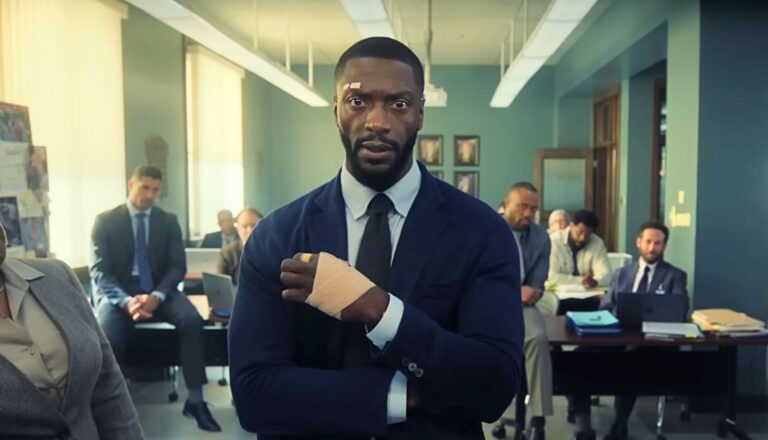
Cross
Though it’s compelling, the content concerns in Prime Video’s ‘Cross’ might be enough to cross it off your watch list.
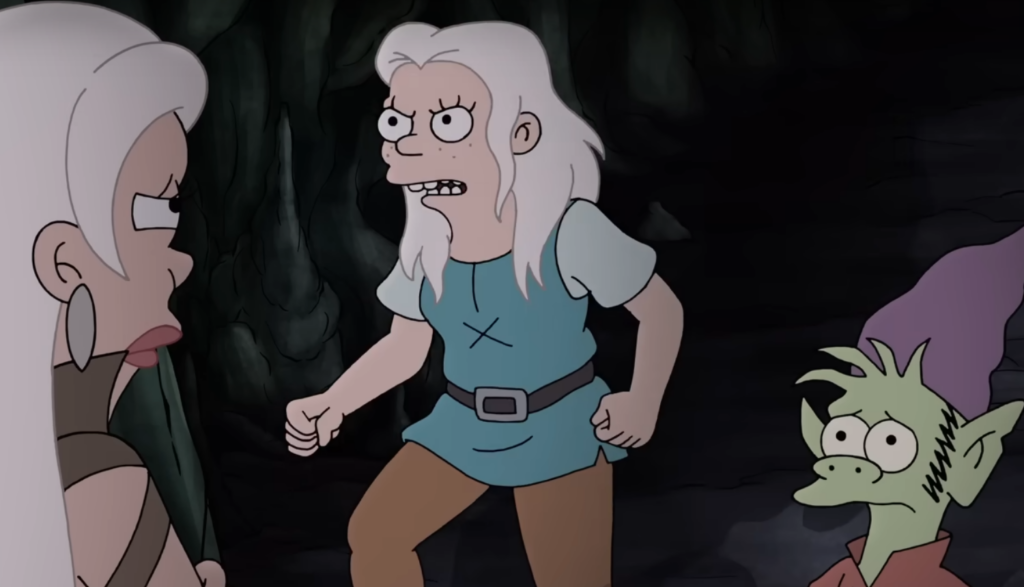
Who wouldn’t want to live in a fairy tale world?
Bean, that’s who.
You’d think that Bean—short for Tiabeanie Mariabeanie de la Rochambeaux Grunkwitz—is literally living the dream, wouldn’t you? I mean, not only does she live in an actual fairy tale world, she’s a princess in that world, the lifelong ambition of at least 80% of the little girls you’ll see in any Disney theme park. Her home state of Dreamland (“Now with five village idiots,” the sign reads) certainly looks nice, what with its huge-ish castle on a cliff and its picturesque village below and its (thus far) distinct lack of destructive dragons.
But the grass is always greener on the other side of the monster-infested moat, and Bean would tell you that being a princess isn’t all it’s cracked up to be. Not when your parents want you to get married against your will and all, and then try to murder you when you refuse to marry Satan—as in the red-skinned, horned king of hell himself.
What’s a princess to do but turn her mother into a bear and—
No, no, wait. That’s another story. What’s a princess to do but hide in the woods with three fairies who can’t agree on colors and—no, no, sorry. Wrong one again.
What’s a princess to do but run off with the Dread Pirate Roberts and deal with Rodents of Unusua …
All right, one more try: What’s a princess to do but run off with an elf, a tiny demon and her mermaid girlfriend and have a series of animated, off-color adventures with one another?
Yeah, that’s the right one.
Subversive fairy tales have been all the rage since Shrek, really. Even the fairy tale kingdom of Disney itself has cranked out a couple such stories, from its sweetly revisionist princess fable Frozen to its darkish ABC drama Once Upon a Time.
But the magical kingdom of Disenchantment comes not from the House of Mouse, but from the mind of Matt Groening (Josh Weinstein is also listed as co-creator), conjurer of The Simpsons and the architect behind Futurama. No surprise that this satirist of American suburbia and twister of tomorrow would want his own, warped spin on fantasy, too.
We must begin with Bean, a hard-drinking, hard-living princess who longs to see what the world looks like outside her daddy’s castle, one bar at a time. (Not that she hasn’t seen plenty of it already: “I have to wear this crazy veil and pretend I’m a virgin?” she bemoans on her first ill-fated wedding day, shortly after she’s dragged away from the local tavern.)
She’s not alone in her escapades, though. She’s accompanied by Elfo the elf, who has a crush on Bean, albeit secret and unrequited. He serves as the party’s voice of happy optimism (such as it is). Bean’s also bringing along her own, literal, personal demon, too: Luci, and he’s sometimes mistaken for a cat. (Which, based on the cats I’ve known, isn’t much of a stretch.)
Though lately, Bean’s been thinking about leaving Dreamland altogether and running away with her girlfriend, Mora, the princess of Mermaid Island.
Bean’s ensuing adventures make many a nod to everything from Snow White to The Princess Bride, from The Lord of the Rings to Game of Thrones. But despite its pedigree and imaginative forebears, Disenchantment is far from magical.
This is not to say that Netflix’s animated fantasy tale is wholly lacking in merit. It can be clever. It can be funny. It can even flash moments of satirical insight.
But overall, Disenchantment seems dispiritingly well named. It feels more forced than its forebears. Whatever magic it does conjure up seems a bit like a Ron Weasley spell early on in Harry Potter: as likely to miss as hit.
Speaking of magic, naturally, there’s a lot of that here—not just the fairy tale sort we’d find in Sleeping Beauty, nor the naturalistic magic of Harry Potter, but sometimes full-on dark-arts stuff. (After Bean refuses to marry Satan, her recently-brought-back-to-life-via-magic mother marries him instead and vows to kill Bean.) It’s exemplified by the infernal homunculus haunting Bean’s every step. Sent by sinister pair of sorcerers who mean ill for Bean, Luci is hardly painted as a force for positive growth. But given his presence as a prime character in this tale, this denizen of “the deepest depths of the underworld” is more sympathetic than you’d like a demon to be.
And sadly, they’re not just glorifying the denizens of hell, but also mocking everything to do with heaven. When “God” makes an appearance, his face is literally hidden by a glowing beam of light. One of Bean’s friends, who managed to make it to heaven after dying, asks questions meant to undermine him, such as, “Is God really everywhere?” Which then becomes a gross joke about God being inside of toilets looking up while people do their business.
And the show’s problems hardly end there. This fairy tale world is filled with dark spiritualism, prostitute fairies, promiscuous elves and violent wars—the latter of which might even prompt Itchy and Scratchy to close their eyes.
Disenchantment has a few charms, ’tis true. Too bad they’re found in such a troublesome stew.
Bean’s friends mourn her after they believe her mother, Queen Dagmar, killed her. Little do they know that Bean was rescued by Mora, her girlfriend, and is hiding out in a cave.
Magical creatures include elves, mermaids and a talking pig that was once human. A few demons make appearances, from the cat-like Luci to red, cartoonish beings complete with wings, horns and devil tails. And speaking of devils, Satan makes an appearance, too. He’s married to Dagmar (whose depravity and desire to kill her daughter shocks even him). He and another demon list all the evil things they’ve created, which includes cilantro and the banjo. It should also be noted that he says “thank God” twice, though obviously without any real sentiment.
As a mermaid, Mora doesn’t wear clothing (her hair covers her otherwise-exposed chest). She and Bean lie together in a cave post-coital, with Bean’s limbs and hair covering critical bits of her own anatomy. The couple kisses a few times. A sorcerer with three eyes looks fondly at a picture of his boyfriend.
A female human and male elf grope and kiss on top of a bed. Dagmar wears a revealing dress that leaves little to the animated imagination. Other characters wear revealing outfits, too. An elf removes his clothes and dives into the ocean (cleverly placed objects block his indecency, but we see his exposed backside). A boy shows his friend an inappropriate calendar featuring his nanny in a revealing outfit.
Someone turns a torture scenario into sexual innuendo. A torture device invokes a bit of male anatomy. Other characters make sexual propositions. There’s mention of “naked playing cards.” We hear a complicated plot involving marital infidelity and a boy becoming sexually attracted to his nanny. A woman says she used to dance at an exotic club and pantomimes some of her old dance moves.
In the previous season, Bean decapitated her doppelganger, Bad Bean, before Dagmar pushed the real Bean off a balcony into the ocean, apparently killing her. (Bean’s friends find blood they believe is hers on the balcony’s railing.) Dagmar lugs around the disembodied head of Bad Bean. The real Bean’s friends hide Bad Bean’s headless corpse to prevent Dagmar from using it in a spell.
A man is killed with a flaming arrow to the head. An executioner claims he collects human heads. And a dogfood maker admits to using human corpses in his recipes (we see him eat some of it). Someone tells a story about accidentally starting a fire that killed 40 people. We hear someone mention a dead walrus rotting on the beach.
A man repeatedly hits another man’s head with baseballs, causing lumps to form. After showing Elfo several torture devices, Dagmar whips him several times. An elf gets his eyeball stuck in a keyhole, injuring himself. A woman is purposely tripped. Luci fills a pair a shorts with sand and then chucks them at Elfo’s head.
Characters drink booze and smoke cigars. A few characters smoke marijuana from a bong.
Several odd-looking characters are imprisoned for a “freak show.” Dagmar is rude to her subjects.
God’s name is abused a handful of times, twice paired with “d–n.” We hear several uses of “a–,” “d–n,” “h—” and the British expletive “bloody.”
Bean escapes a marriage to Satan while her friends break out of an afterlife in heaven.
Nude characters cavort in both heaven and hell (with critical anatomy hidden by props). Cleavage heaves on female characters. Consummation is “encouraged but not required” in a marriage contract. An elf says he was sleeping with another elf’s wife.
Plenty of demonic beasts attend Satan’s “unholy matrimony” in a church in hell. God tells someone that he doesn’t intervene on Earth because every time he sends someone to fix it, a new religion pops up and lots of people get slaughtered. Several impish characters worship the corpse of Luci and bring it back to life with an elixir.
Ogres and gnomes go to war with gory and grotesque results (we see lots of flying organs and bloodshed). Bean carries Luci’s severed head around in the hopes of reviving him. Bean’s marriage contract is signed with bloody handprints after slicing open the participants’ hands. An elf dies from shock.
We hear uses of “a–,” “b–ch,” “d–n” and “h—.” God’s name is also abused (sometimes paired with “d–n”).
Bean’s very sad that her domineering father is making her get married to another noble in order to cement a fairyland alliance. “I thought I would get married for true love or because I was wasted,” she laments. But when a runaway elf crashes the wedding, and when her own personal demon (Luci) gets her drunk off communion wine, the three make their getaway, pursued by her would-be husband.
The pursuer is actually Bean’s second would-be husband. The first (mostly) killed himself when he bent too close to a throne made of swords, stabbing himself fatally in the face. (Although impaled, he continues to talk until someone covers his face with a handkerchief.) The Elf, named Elfo, has his own brush with death: After being caught in bed with Kissy the Elf, he’s sentenced to hang; but he’s apparently too light to be strangled. (The last elf sentenced similarly apparently died of old age.) So Elfo leaves his magical realm and immediately stumbles into a war involving what look to be garden gnomes and loincloth-wearing giants. We see many gross fatalities and dismembered gnome and giant parts. One giant has both of his eyes skewered by tiny swords.
Luci was sent by two evil leaders hoping to corrupt Bean (not that she needs too much encouragement), which they say could take “months, if not years.” The pair watches the goings-on in a green fire. Bean’s would-be wedding takes place in a church presided by a priest of some sort. She asks “the invisible god we think is up there to watch over us, if he, she or it is even capable of things like watching over us.” She adds (in a possible critique of modern religion), “Nobody knows anything for sure, but if I talk with enough confidence you dopes will believe anything I say.” A quasi-spiritual enclave is imbued with the trappings of Buddhism.
Bean strips off her shirt in public, revealing an animated bare back. (Her father warns that if anyone looks at her, they’ll be beheaded.) Bean and her companions run into a fairy prostitute (who looks a lot like an aged Tinkerbell), and she leads a suit-wearing bird customer into her abode. Bean’s stepmother, a monster-like woman, conflates the word “testicle” with “tentacle” and discusses her sexual relationship with Bean’s father. Animated cleavage is shown, and Bean’s lady-in-waiting pushes Bean into a corset, telling her that it’ll push “all the mincemeat to the top of the pie.” Elfo and Kissy are shown in a number of compromising (albeit clothed) positions. Someone punches a kilt-wearing Scotsman repeatedly in the privates. Incest, lost virginity, lewd voyeurism, masturbation, prostitution and dowries of goats are all verbally referenced.
Luci gets kicked and thrown about repeatedly. He also smokes cigarettes. We see people drink various alcoholic beverages and hear them say “a–,” “h—,” “sucks” and misuse God’s name twice.

Paul Asay has been part of the Plugged In staff since 2007, watching and reviewing roughly 15 quintillion movies and television shows. He’s written for a number of other publications, too, including Time, The Washington Post and Christianity Today. The author of several books, Paul loves to find spirituality in unexpected places, including popular entertainment, and he loves all things superhero. His vices include James Bond films, Mountain Dew and terrible B-grade movies. He’s married, has two children and a neurotic dog, runs marathons on occasion and hopes to someday own his own tuxedo. Feel free to follow him on Twitter @AsayPaul.

Emily studied film and writing when she was in college. And when she isn’t being way too competitive while playing board games, she enjoys food, sleep, and geeking out with her husband indulging in their “nerdoms,” which is the collective fan cultures of everything they love, such as Star Wars, Star Trek, Stargate and Lord of the Rings.

Though it’s compelling, the content concerns in Prime Video’s ‘Cross’ might be enough to cross it off your watch list.
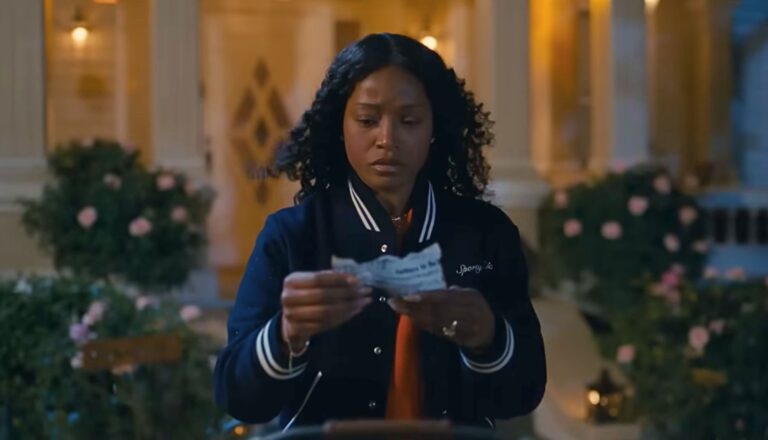
‘The ‘Burbs’ is Peacock’s attempt to adapt the 1989 movie of the same name. But a fresh coat of paint doesn’t hide the content issues.
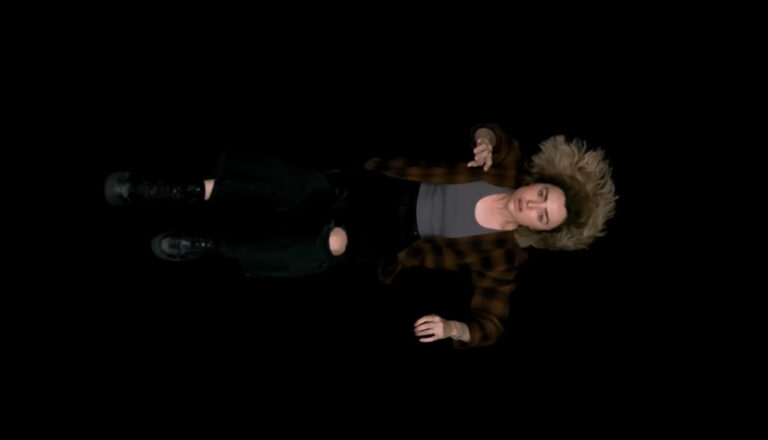
Don’t be fooled by the show’s teenage characters. Parents would be advised not to let their own teens be haunted by its content.
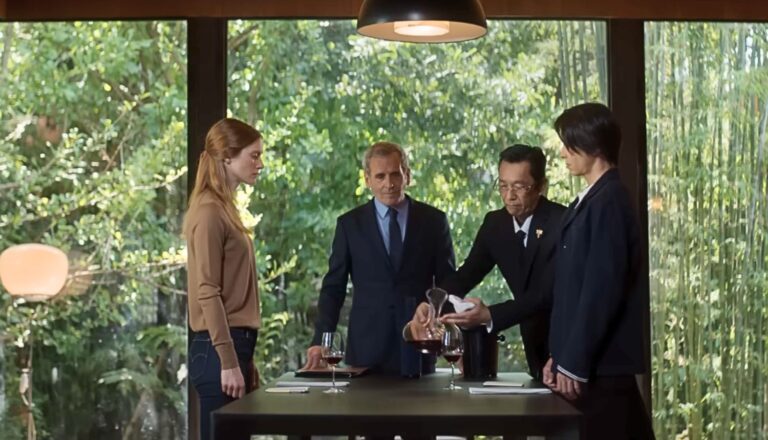
‘Drops of God’ focuses on a wine-centric competition, and it comes with notes of sexual content and some crude language, too.